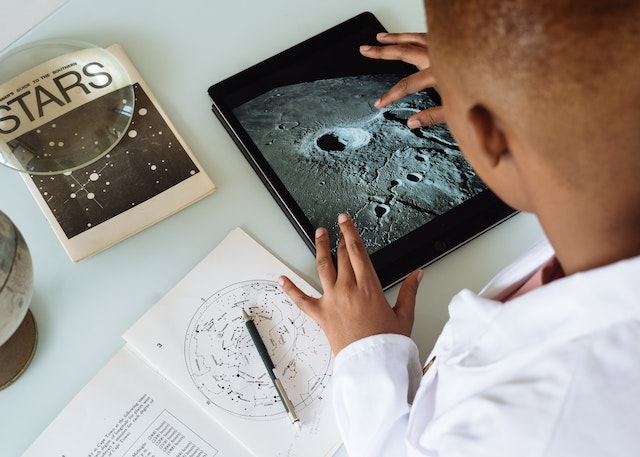
What comes to mind when you think of research? Maybe a lab with scientists in white coats, test tubes, microscopes, a group of virologists studying viral infections, or researchers like physicists or chemists using new electronic devices? Also, you may remember people from other fields such as those who conduct surveys on consumer preferences. That too is research! They all share the same basic principles.

So what is research?
Every research begins with an unanswered question. These questions vary from field to field. Searching for new knowledge, turning ideas into inventions, or finding new drugs to cure a disease through some research can be taken as simple examples.
Why is research important?
No matter what career field you’re in or how advanced you are, there’s a lot to learn. The same applies to your personal life. No matter how experienced you are or how diverse your social circle, there are things you do not know. Research opens up the unknown, allowing us to explore the world from different perspectives and gain deeper understanding. In some sectors, research success is essential. It may not be essential for some other fields, but it has many advantages.
1. Research expands your knowledge base
The most obvious reason to do research is to learn more. Even if you are already well versed in a subject, there is always more to learn about it. If you’re not, research allows you to build on any personal experience you have with the subject. The research process opens up new opportunities for learning and growth.
2. Research gives you the latest information
Research encourages you to find the latest information available. In some fields, especially scientific ones, new information and discoveries are always being made. Staying up-to-date will prevent you from falling behind and providing inaccurate information. With the latest information, you can be better equipped to talk about a subject and form ideas.

3. Research helps your future plans; what tactics your competitor might adopt.
-
- You will face competition in business. Researching the tactics your competitor might take will help you shape your plans and strategies.
- In other research such as medicine, your research can identify diseases, classify symptoms and help treat them better.
4. Research builds your credibility
Doing research gives you a solid foundation on which to build your ideas and opinions. You can speak confidently about what you know is People will be more receptive to your ideas when you can say you are knowledgeable. When you do your research, it’s very hard for someone to disagree with what you say. Your research should focus on the best sources. If your “research” consists of opinions from non- experts, it won’t be very reliable. However, the better your research, the more likely people will pay attention.
5. Research helps you to narrow down your subject scope
When you’re going around a topic for the first time, you’re not sure where to start. In many cases the scale of work before you is overwhelming. Whether you’re writing on paper or creating a business plan, it’s important to narrow the subject scope at some point. Research will help you identify the most unique and/or important themes. You can choose the themes that best suit the project and its objectives.
6. Research can give you a better understanding
Doing a lot of research will help you find high quality information. The more you research a topic, the more clarity you develop. The information may be technically correct but in mathematical/problematic situations, research to draw conclusions will give you better results.
7. Research will introduce you to new ideas
You may already have ideas about a topic when you start researching. The more you research, the more perspectives you will find. This encourages you to entertain new ideas and perhaps take a closer look at your idea. You might change your mind about something, or at least find out how to best position your ideas.

8. Research helps to solve problems
Whether it’s a personal or professional problem, research helps you to look for answers. Depending on what the problem is, your research can focus on what others have done before. When you know you’ve gathered good information, you’ll feel more confident about your solution.
9.Research helps you reach people
Research is used to raise awareness about climate change, racial differences, gender inequality, and more.
10. Research encourages curiosity
Having curiosity and a love of learning will lead you to success in life. Research opens you up to different ideas and new ideas. It also builds discernment and analytical skills. The research process rewards curiosity.
Curiosity is also good for your health. Studies show that curiosity is associated with higher positivity, life satisfaction, and less anxiety.
You should now understand that research is a process of finding new information, new understanding, and new facts. This can be done by testing theories and making observations. Scientific methodology is used for this.

We now know that modern problems require modern solutions. Research is a catalyst for solving the world’s most pressing problems. Thanks to scientific research, mankind has recorded much progress. Modern medicine can cure diseases like tuberculosis and malaria. Furthermore, based on the research have been done on SARS and Covid-19, we have been able to diagnose new diseases, treatment including simple vaccination. In addition to improving healthcare, it is also responsible for the evolution of technology, which has led to the advancement of almost every other industry in the age of automation.
The world has become what it is today because throughout history scholars have been searching for answers in their laboratories. Our future depends on what we do with this newfound information.
Research is what propels humanity forward. Research is the driving force behind our personal and professional development.

